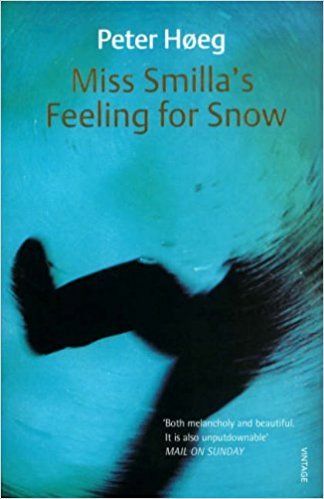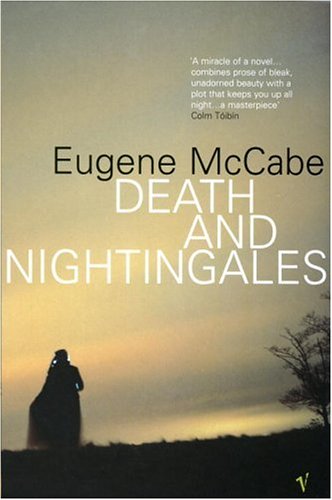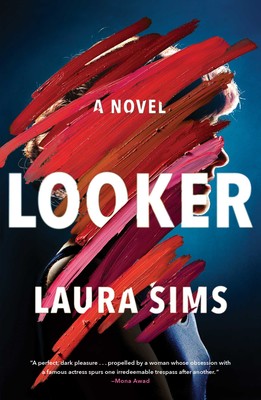
This past week has been rather unusual. I’ve been on the road doing some advance publicity for The Dollmaker, talking to booksellers in London and across the West Country – where the novel is largely set – and having a delightful breakfast meeting with book bloggers and magazine editors at the Museum of Childhood in Bethnal Green. The strangeness of finding myself in the company of a whole bunch of people who had read the novel was a sensation outdone only by its pleasure. Andrew and Bramber have been a special part of my life for more than a decade. To realise that they have also become special to other people is the most valuable reward a writer could ask for. This is the end point of the process and one that only ever becomes more mysterious and surprising.
I have always loved travelling by train. One of the chief joys this week of what might otherwise have been a long and tiring series of journeys has been the opportunity to read three very different novels, one after another and with the effects lingering throughout this cut-off little section of time in the same way a particular weather or aroma might unexpectedly attach itself to a particular place. First came Peter Hoeg’s Miss Smilla’s Feeling for Snow, a novel I was aware of and intrigued by on publication, yet somehow never got round to reading. I started it the week before last, when our island was still covered in snow, and completed it during the train ride from Glasgow to London that comprised the first leg of my journey.
The prevalence of frost, the steely Clyde, the progression through the still-snow-streaked hills of Cumbria brought me close to this novel in ways I could never have anticipated, and what I felt most of all through the first half of Smilla’s narrative in particular was an increased appreciation of the landscape in which I now live and work, a joy in what I have started to think of as the Northern aesthetic. And yet – and I still feel the pain of this – Smilla turned out to be very much a novel of two halves for me.

The novel’s Part One concerns the discovery of a body – the body of a young boy – and the increasing conviction on the part of the eponymous Miss Smilla that his death is no accident. It is set in Copenhagen, in winter, and I have rarely met with such an exquisite evocation of place, such a deep dive into the strange alchemy of idiosyncracies and generalities that make personal recollection so resonant and compelling. The attention to technical detail, both in matters of meteorology and what might be termed common bureaucracy – that kind of in-depth focus on what might wrongly be construed as irrelevances – made this extended section of writing a joy for me. I felt mesmerised by the beauty of it, by the author’s willingness to take that kind of poetic risk. This part of the novel is also characterised by an intricate social commentary examining the colonial relationship between Denmark and Greenland. The daughter of an Inuit mother and a mostly absent Danish father, Smilla feels irreconcilably caught between two cultures. The tension this induces informs the narrative in powerful and surprising ways.
The characterisation of Miss Smilla herself is a thing of wonder. Rarely have I felt so close to a character. Make of that what you will.
In the second half of the novel, Smilla smuggles herself on board a ship bound for Greenland and the eventual resolution of the mystery. There is absolutely no reason this section should not have been equally compelling – yet turning the page to begin this part of the narrative felt to me disconcertingly, almost shockingly akin to entering a completely different novel. The careful construction of a narrative edifice, the complexity, the minute observations, the fascinating web of relationships – whoosh, gone. Smilla barely seems to remember or think about her life and discoveries in the first section of the novel. What we have instead is a narrative that feels as if it is going through the motions: rather boring thriller elements, unnecessary killings, bare-bones characterisation, sketchy description that felt as if it had been bolted on at the last minute. I was literally open-mouthed with disappointment.
In the past two years or so I have become increasingly interested in new ways of writing crime fiction. What I rejoice in, more than anything, is the kind of novel that takes the detective story as its template and then makes something weighty and great from it, that nods to the tropes and enjoys them but that is driven to go that further mile in terms of literary invention: Margaret Atwood’s Alias Grace, Rupert Thomson’s Death of a Murderer, Jon McGregor’s Reservoir 13, Katie Kitamura’s A Separation. While reading the first half of Miss Smilla’s Feeling for Snow, I had the same feeling I had when I first read Umberto Eco’s The Name of the Rose, close on thirty years ago – that I was in the presence of a genuinely important work of European literature.
The second half blew that out of the water – almost literally. It felt desultory, by-the-numbers, filling in plot. Most of all, it felt to me as if Hoeg had refined Part One to a degree of perfection that pushed him to the boundary of his ability as a writer at that time, then for some unknown reason went on hiatus. Every writer knows what it’s like – leave a manuscript uncompleted for too long and something gets away from you. It is difficult, almost impossible, to re-enter the state that led to the creation of that particular narrative. Rather than trying to pick up where you left off, it is often better to start again from the beginning, to re-imagine the novel as the writer you have become in the time since you let it slide. Painful, but true.
I have absolutely no idea, of course, if anything of the sort happened. What I do know is that I just don’t get it. The novel’s resolution – the reason behind everything – I actually quite liked. It was sinister and frightening and unusual. But the hundred-and-fifty pages leading up to it were so much generic padding. The novel reads like a cut-and-shut. I’m still in mourning.
*

After that breathless roller-coaster ride of ecstasy and disappointment, it was actually quite weird to enter Looker, the debut novel from poet Laura Sims, a slim, present-tense, no-words-wasted novel of the perfectly-honed variety that is fashionable right now. The protagonist, a college lecturer, attempts to keep up an appearance of normality while her life collapses around her. As her personal crisis deepens, she becomes increasingly fixated on an actress who lives in the building across the street from her. The actress, it would appear, leads a charmed life. Our protagonist begins to collect pieces of it for herself – literally.
Hoeg’s aim – like Dostoevsky’s in Crime and Punishment, like Thomas Mann’s in The Magic Mountain – is to involve his reader, to draw them, through weight of words and argument, into the same philosophical and emotional labyrinth that enfolds their protagonist. In novels like Looker – think Sheila Heti, think Ottessa Moshfegh, think Gwendoline Riley – there is a distancing effect, achieved in part through the novel’s smoothly planed surfaces, in part through the author’s insistence on our stunned complicity. Like these novels’ protagonists, we do not act, we spy. We gaze, round-eyed, at the misfortune that inevitably unfolds. We are become, in fact, lookers.
I admired Sims’s novel for its perfectly modulated sentences, its mordant insights, its sharp analysis and demolition of traditional mystery tropes. It did suffer from being read straight after the Hoeg, though. You read Smilla and know in spite of everything that Hoeg was pushing himself to the limit. Looker feels studied and if not exactly arch then constructed by comparison. Too obviously aware of itself as good art. Katie Kitamura’s A Separation, though not dissimilar in some ways, takes more risks, reveals more personality, distills more real emotion and feels more mature generally. I liked Looker, but I didn’t love it.
*
Passing from Looker to Eugene McCabe’s Death and Nightingales provided another jolt, this time in the opposite direction. Set in County Fermanagh in the first half of the nineteenth century. the novel tells a story of nascent sectarian violence, family secrets, betrayal and murderous revenge. It is a crime novel only in the loosest sense: by the time the action is over, a crime has been committed. Of the three novels I read this week, McCabe’s is the most traditional in form – the most staunchly realist. It is also the only one of the three you could point to and call flawless, or Dostoevskian, or both. In terms of page length it is as economical as Looker, yet in terms of the richness and passion of its language, its taut dissection of national schisms, the many unforgettable scenes at its heart it would seem to contain three times as much. One feels enriched and invigorated from reading it, certain in some sense that this is how great writing should taste and feel and be, equally certain that one can never and will never attain such mastery.
It’s strange, though, isn’t it? While I was looking up information on Eugene McCabe, I came across his appallingly unprofessional and, frankly, childish ad hominem attack on the critic Eileen Battersby in the Irish Times back in 2011. A salutary reminder that even the greatest writers are capable, on occasion, of being absolute dicks.